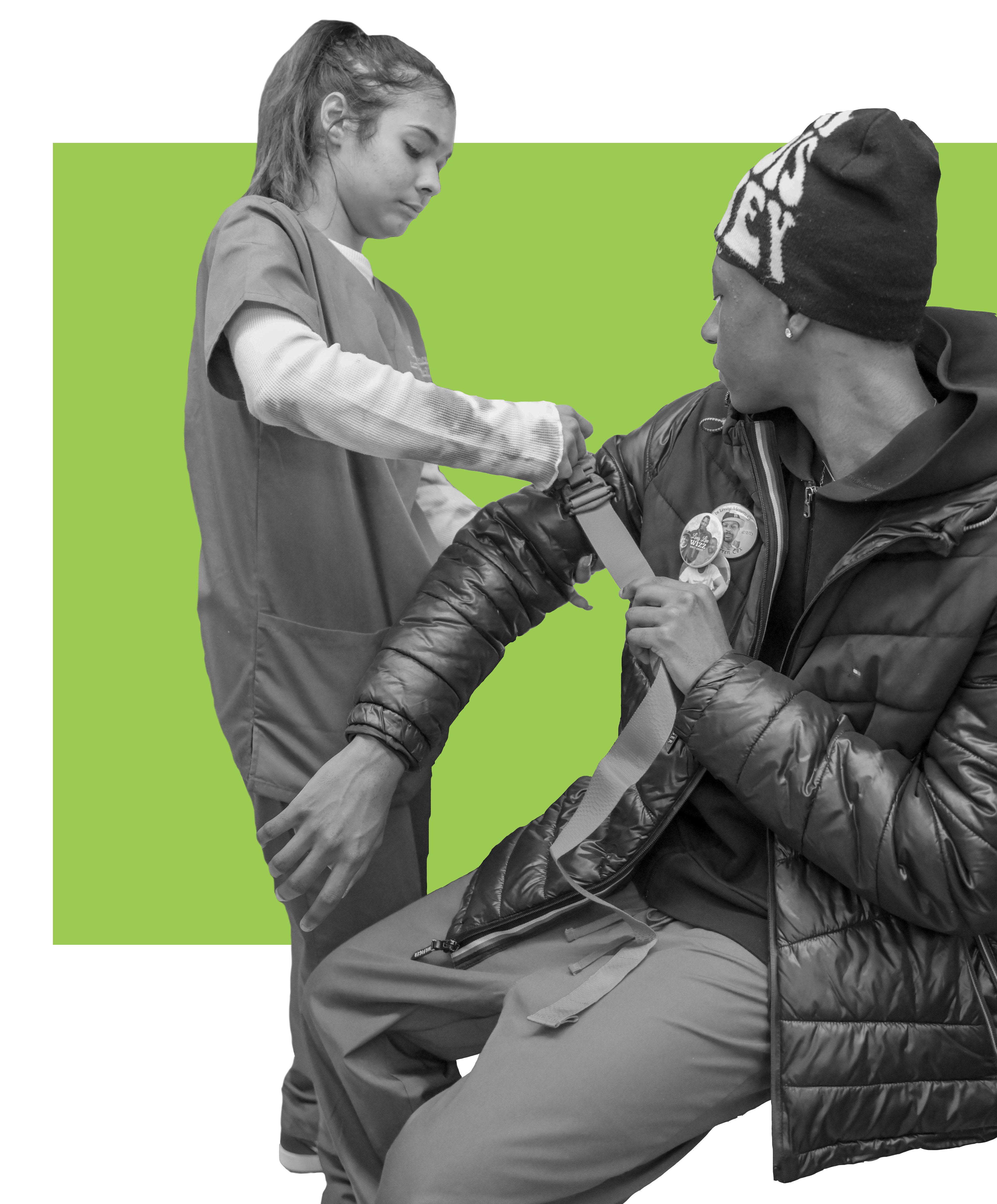It is the teaching and learning that takes place within the school building, on the school grounds, in collaboration with our partners, and in the community that defines a BDEA education.
As a Horace Mann charter school, our teachers are all part of the collective bargaining unit, and sign an Election to Work Agreement which is reviewed annually and revised as necessary by a team of teachers in conjunction with the Head of School. This agreement ensures that our teachers are paid equitably, and that they understand the additional demands of time and expertise required to work in a student-centered, competency-based model.
The work of teachers is supported by staff, all of whom are dedicated to making sure that each student is treated with integrity, respect, and with an expectation for success
BDEA is characterized by its ability to meet students “where they are” on their learning path when they enroll and to assess progress based on the demonstration of proficiency in benchmarks and competencies. We encourage and celebrate student voice and we are a trauma sensitive school. We are student-centered, personalized, and provide multiple pathways to graduation. We have significant student support services, a post-graduate planning pathway to help students prepare for life after graduation, and an emerging career pathways program.
We don’t give up on students. If they are absent, we show up at their homes, get curious, and find out what we can do to get them back to school. If they give birth, or are hospitalized or incarcerated, we hold their spot until they can return. We provide career exploration classes that help students consider future college and career options.
BDEA continues to expand its programming and has received national recognition as an alternative education school that allows students to engage and direct their academic experience. The school welcomes visitors from all over the world, representing educational institutions, public school districts, universities, and the private sector, who are interested in learning more about how to do school differently.

